Mozambique: CMH plans ahead as 'sharp decline' projected for Pande and Temane gas reservoirs in ...
Gas should be used for industrialisation, says PM

TVM (File photo) / Prime minister Carlos Agostinho do Rosario
The Mozambican government’s vision for the hydrocarbon industry is that up to 25 per cent of the natural gas extracted should be earmarked for the domestic market, in order to stimulate industrialisation, said Prime Minister Carlos Agostinho do Rosario on Thursday
Winding up a two day question and answer session between the government and parliamentary deputies, in the country’s parliament, the Assembly of the Republic, Rosario said government strategy also includes “the promotion of national content, through linkages between the large oil and gas projects and small and medium Mozambican enterprises, in order to maximise benefits in generating employment and income”.
Other key principles were the involvement of local communities, and training Mozambican workers.
As for fiscal exemptions, Rosario again denied the claim that the major companies exploiting the gas reserves in the Rovuma Basin, off the coast of the northern province of Cabo Delgado, have been granted tax exemptions for 30 years.
Oil and gas projects, he said, only benefitted from tax breaks during the phase of exploration and the building of infrastructures. “During the production phase, projects in the gas and petroleum industry pay all the taxes envisaged in the fiscal regime for petroleum operations”, the Prime Minister added.
The fiscal regime changed a fortnight ago, when the Assembly passed a government bill on taxing the extractive industries. The new law guarantees “fiscal stability” to extractive companies for ten years, not for 30 years – and only to those with a minimum investment of five million dollars, in the case of mining, and of 100 million dollars, in the case of oil and gas. This is a significant change from the initial tax legislation, of 2014, which granted fiscal stability for a ten year period to any extractive company, regardless of the size of its investment.
Rosario admitted that further change night be needed in the legislation governing oil and gas operations. “Improvements in the legislation”, he said, “should aim at attracting further investments, and also at maximising the benefits of these projects for the development of our economy”.
The Prime Minister warned against allowing the oil and gas industry “to suffocate the growth of other sectors which are determinant for economic growth, job creation and the generation of income. Our approach is the diversification of the economy, to avoid excessive dependence on natural resources, particularly hydrocarbons”.
In particular, increased agricultural production and productivity was crucial “in order to guarantee self-sufficiency in food, and reduce dependence on food imports”.
Agricultural marketing was key in order to stimulate the development of agriculture, and Rosario pledged that the government will coordinate marketing, and will intervene where necessary, through the Mozambique Grain Institute (ICM), to buy up unsold agricultural surpluses.


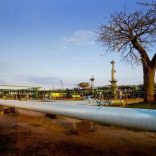


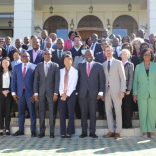
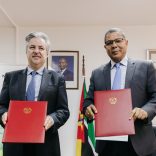
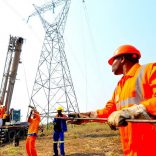



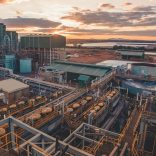
Leave a Reply
Be the First to Comment!
You must be logged in to post a comment.
You must be logged in to post a comment.